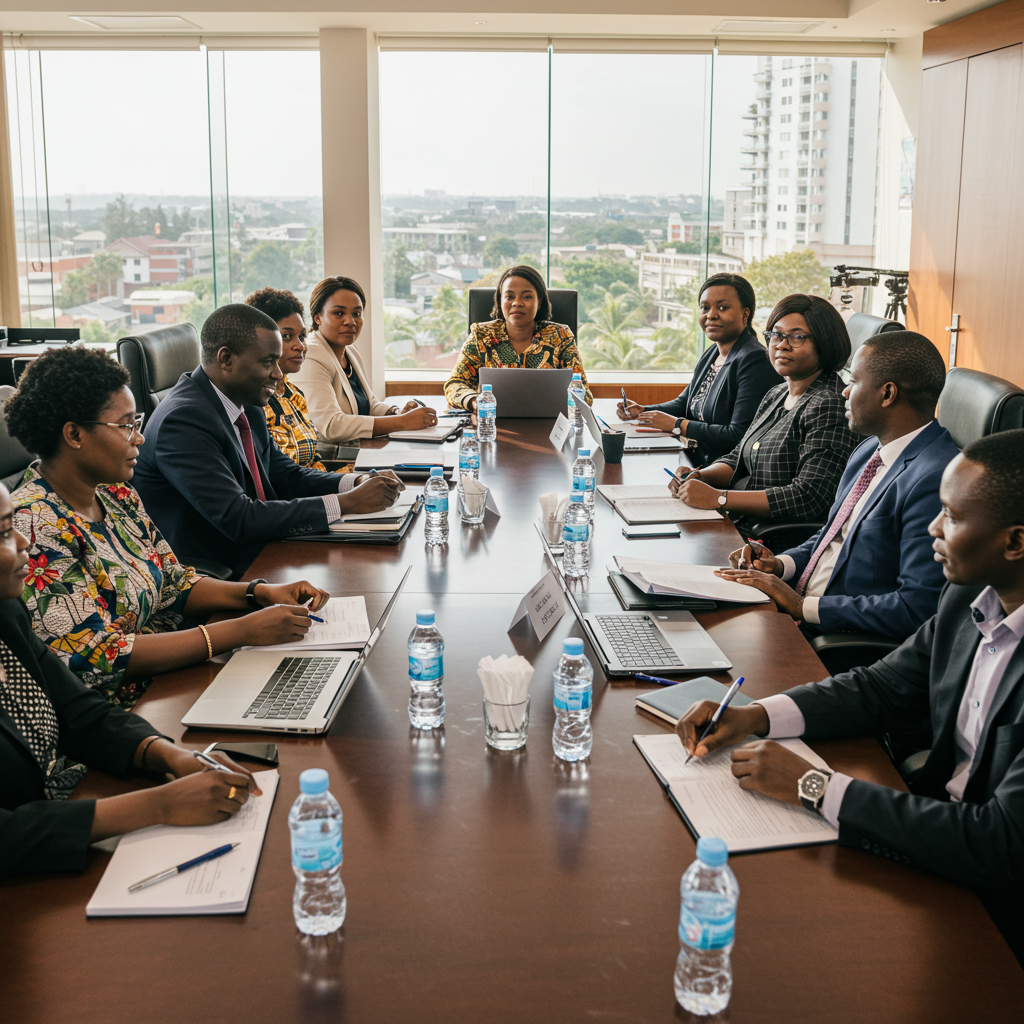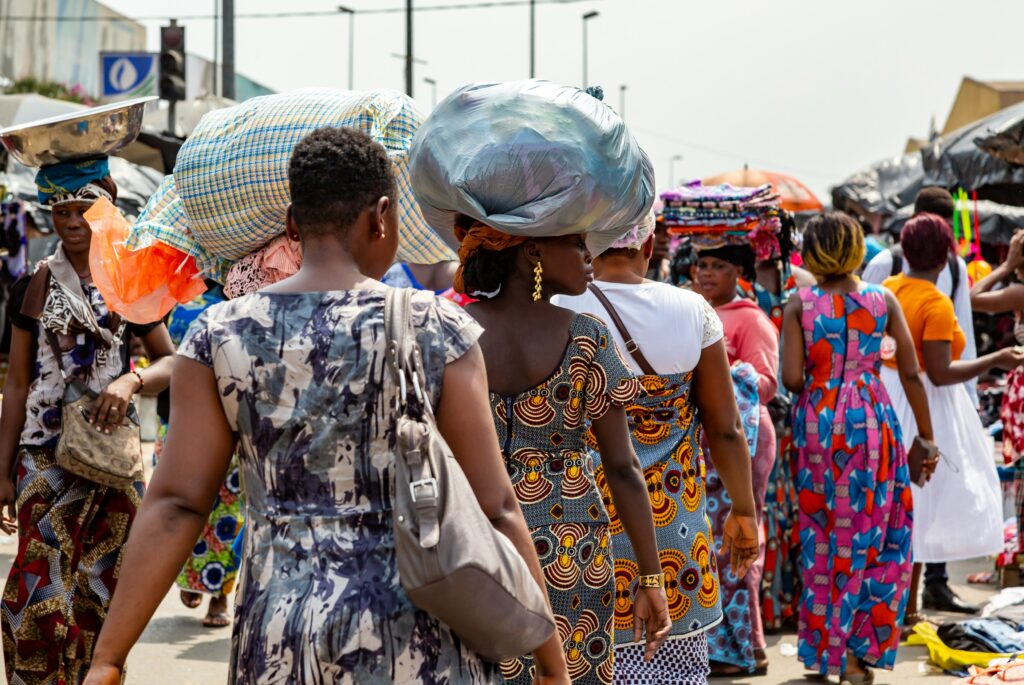At Thellesi Trust, our mission is to promote active citizenship through creative Civic Education, empowering citizens to engage meaningfully with their governments and fulfil their civic duties effectively. We believe that Sustainable Development is best achieved when young people are well-informed about government operations and clearly understand the roles and responsibilities of their elected representatives. This information must be delivered through platforms that they are on and in ways that resonate with them, to ensure they can meaningfully participate in shaping a sustainable future.
We focus on young people because they form the largest demographic in Kenya, with over 75% of the population under 35 years. Their involvement from the outset is crucial, as their needs, perspectives and aspirations differ significantly from older generations, and they will bear the long-term consequences of today’s decisions. They bring fresh, innovative and creative ideas that can spur the Country’s prosperity. Importantly, deliberately engaging young people builds trust in institutions, fosters a sense of ownership and promotes active citizenship.
We are intrigued by the civic shift happening in Kenya since mid-June 2024, where young Kenyans (Gen Zers) have been protesting in large numbers on streets across the Country weekly, demanding responsible and accountable governance. Observing these events closely, we submit that Kenya (and Africa) is at a critical juncture in maturing its democracy and achieving sustainable development.
Young People Are Claiming Their Power.
It is important to note that this movement is being led by a demographic that has long been described as apathetic to politics and governance. It started as a protest against an unpopular Finance Bill (2024) that recommended additional taxes on Kenyans, then it evolved into demonstrations against bad governance and corruption. Despite numerous attempts by the political class to undermine the movement, including violent disruption, police brutality, abductions and even extrajudicial killings, the protestors have remained unrelenting and largely peaceful.
The protests, under various hashtags including #OccupyEverywhere, have made some gains. For example, the movement has de-platformed politicians from pulpits which they have been using for politics, pressured the President to decline to sign the Finance Bill 2024 despite its passing in Parliament, the scrapping of various unconstitutional offices and prompted the announcement of further austerity measures to cut unnecessary expenditures. Moreover, in response to public concerns, he fired his unpopular cabinet accused of incompetence and opulence.
It has widely been described as a unique movement for defying many unconventional expectations. For example, it has been citizen-led, lacking the usual leadership of political figures or activists. Its organising and mobilising has happened via social media, reaching all citizens from all Counties in Kenya. It was preceded by unprecedented civic education campaigns from experts, civil society groups and content creators, who broke down the contents of the Finance Bill 2024 and Budget Estimates for the financial year 2024/2025.
An Inevitable Shift.
Kenya is undergoing an inevitable transformation. The youth bulge is taking up its space, bringing a new reality shaped by young people with very different mental models of the world and its systems. They have grown up in a world that is interconnected through digital technologies such as the internet, smartphones and social media, and information is right by their fingertips. This enabled them to learn quickly and observe things happening around them better than previous generations, shaping their thinking.
Central to all these changes is the institution of government. Most modern governments are democracies, where citizens exercise power and civic responsibility directly or indirectly through elected representatives. These governments’ sole mission is to protect the interests of their citizens. However, even while this is the ideal, democracy continues to be undermined in many nations, and authoritarian regimes are strengthening their hold.
An opportunity has now presented itself for Kenya (and Africa at large) to strengthen democratic values and become truly citizen-centric. To achieve this transformation, it must first acknowledge and address the biggest barriers to democracy, which in our view are:
- Trust Deficit (Private over Public Interest).
The overarching sentiment of citizens around the world is lack of trust in governments. This is unsurprising given the numerous examples of leaders undermining the rule of law and using their power to pursue personal interests at the expense of citizens. They lie to secure government positions, break promises unless there are political gains, rig elections, engage in corruption and make decisions without consulting their constituents. In extreme cases, governments have been seen to intentionally cause harm to their people.
This trust deficit creates a dangerous positive feedback loop. It discourages citizens from participating because they feel that their input does not influence outcomes. When they don’t participate, decisions are made by those in power, reinforcing the belief that participation is futile, and therefore perpetuating the cycle. In Kenya’s 2022 general elections, only 39% of total registered voters were between the ages of 18 and 35. Many young people did not vote out of the belief that their votes would not make a difference. (Insert our data).
- Knowledge Asymmetry (Citizens Are in the Dark).
In an ideal world, citizens have easy access to timely, credible information on government activities and decisions. When governments are transparent, it is easier to hold them to account. And while many democratic governments are taking steps to be more open, there is still work to be done. Citizens across democracies often don’t know what their governments do or who their leaders are. We know this because we asked more than 3,000 Kenyans after Kenya’s 2022 elections and they told us!
This asymmetry largely results from the government’s lack of proactive communication – ensusring that information is disseminated and a sufficient number of citizens from diverse backgrounds have responded to it. In Kenya for example, the government quietly publishes information on its websites and newspapers. But, most Kenyans neither visit these websites nor read newspapers. In addition, government documents are dense in language and lengthy (even the popular versions that are translated into Swahili). On top of this, little time is usually given for people to engage with the information. All these factors create barriers to engagement and undermine democratic values.
Innovating Civic Education For Meaningful Participation.
Democratic governments agree that all power belongs to the citizens. Therefore, it is important for these citizens to be informed on governance affairs, giving them the power to participate effectively. Civic education offers an opportunity for both governments and citizens to share information, learn from each other and respond to each other’s needs. In line with the systemic shifts happening globally, there is a need to relook at how civic education is done and align it with current/emerging trends.
The biggest barrier to engagement that governments and civil society organisations have to overcome is jargon. Unfortunately, governments speak like governments, lawmakers speak like lawmakers and often, civil society speaks like civil society. Meanwhile, grassroots citizens speak like grassroots citiens. Institutions create information that makes sense to them, then wrongfully assume that it will be understood in the same way by local citizens.
Governments and civil society must simplify and localise complex governance jargon for the new generation of citizens to easily understand. A good case study is the civic education that happened around the Finance Bill 2024 in Kenya. In reality, only a fraction of Kenyans read the actual Bill – mainly experts, scholars or the media. Experts and the media discussed the Bill at expert level, and civil society tried to break it down even further. It was not until local content creators started talking about it that it truly sparked interest among ordinary Kenyans. They succeeded because they were familiar, trusted, and they connected better with the issues, experiences and perspectives of local people (their followers).
As the conversations on the Finance Bill 2024 were ongoing, we designed and ran a viral social media campaign dubbed #JuaBudget, to raise awareness about Kenya’s National Budget Estimates 2024/2025. The campaign transformed the budget document from a boring read to engaging memes. Consequently, more people became informed about the government’s priorities and allocations and voiced their opinions both online or offline. In 4 weeks, the campaign reached more than 19 million accounts across all social media, organically (without paid advertising).
Also Read: Marketing For Public Participation - A Case Study
Moving forward, it is crucial for governments to adopt innovative strategies to connect with young people. This involves moving away from conventional methods such as print media to strengthening partnerships with civil society, other citizen groups and even marketing agencies to localise and disseminate crucial information. With usable information, citizens will actively in governance.
We welcome your ideas and comments on our work. Please write to us at [email protected] and we share be happy to engage with you!


